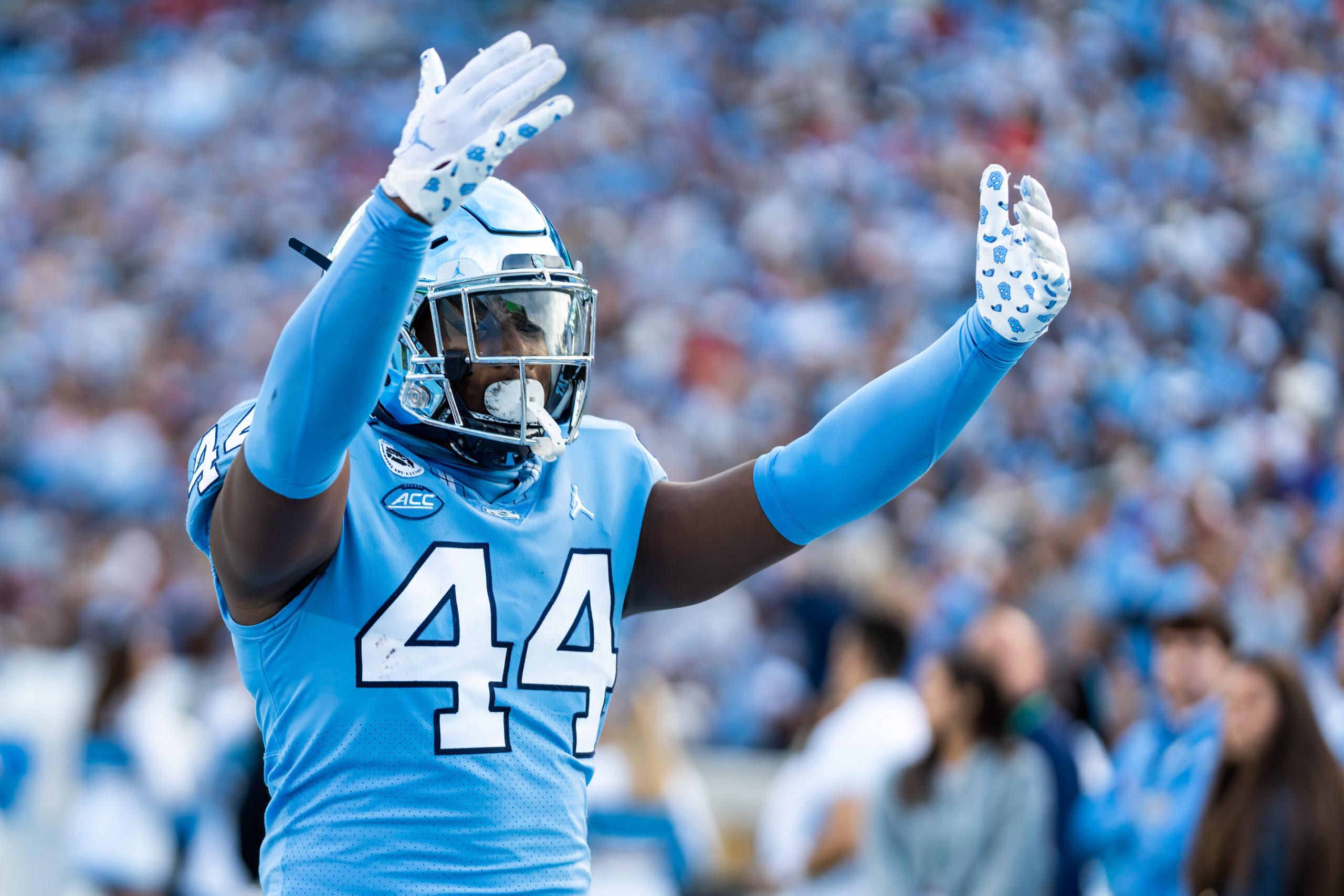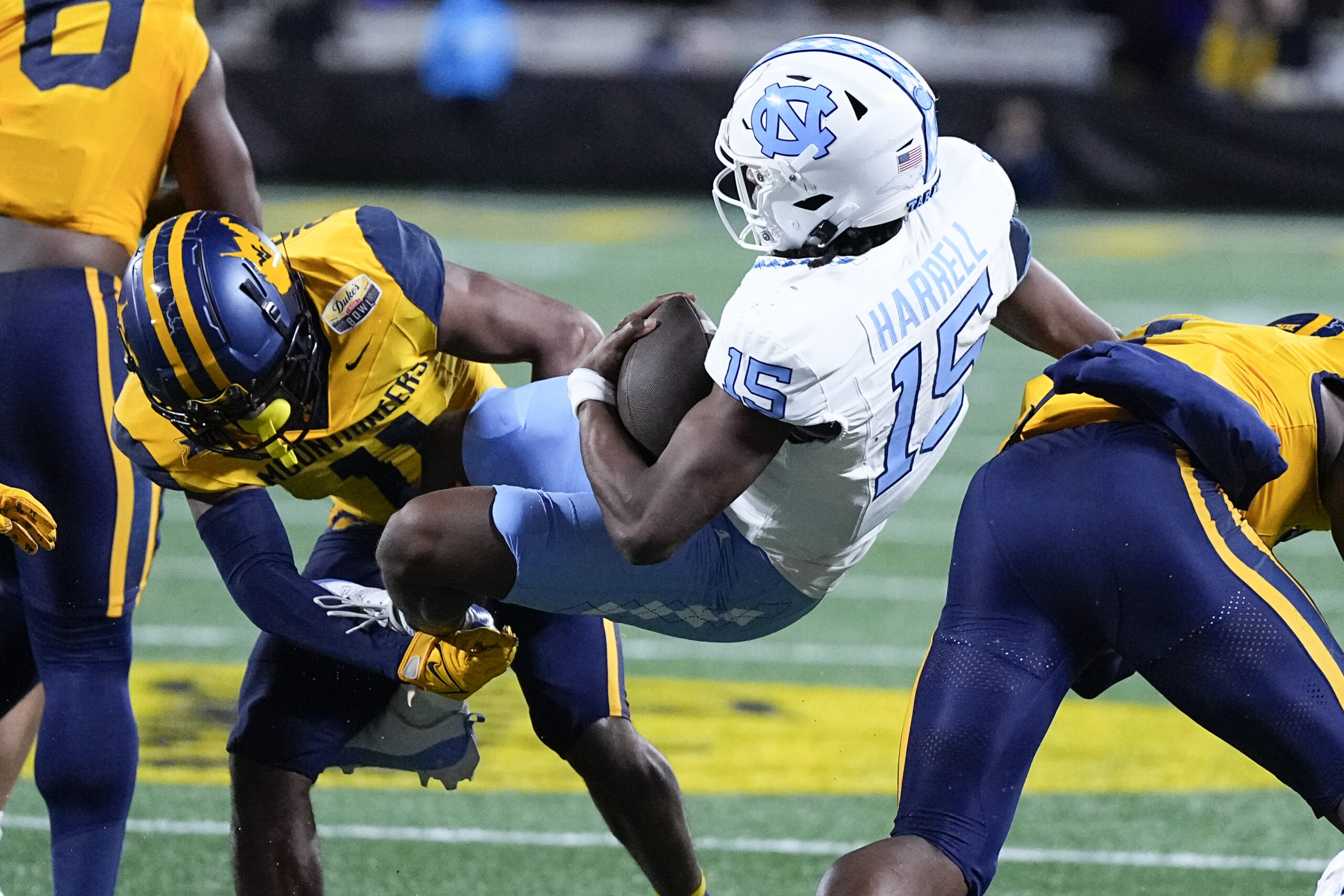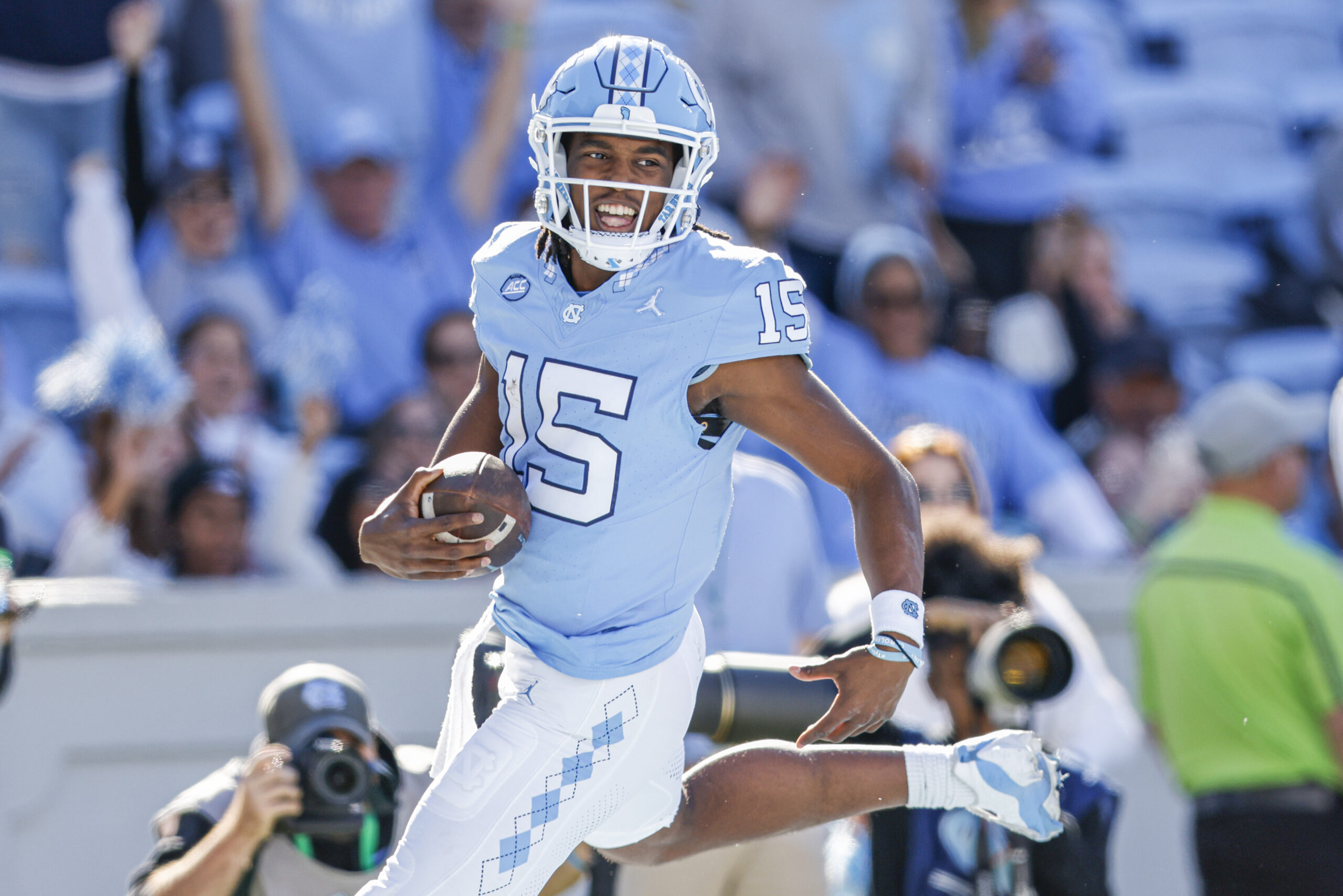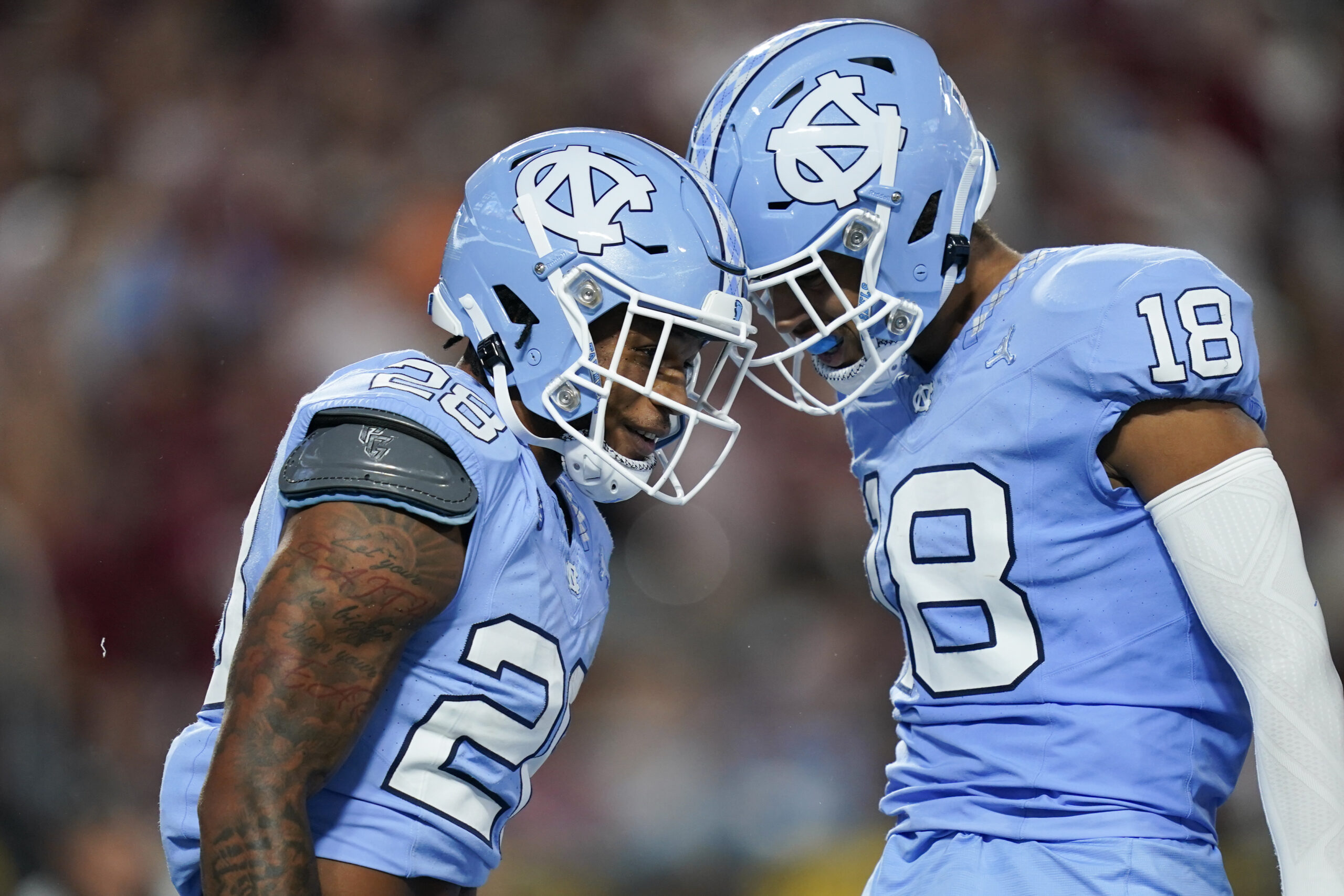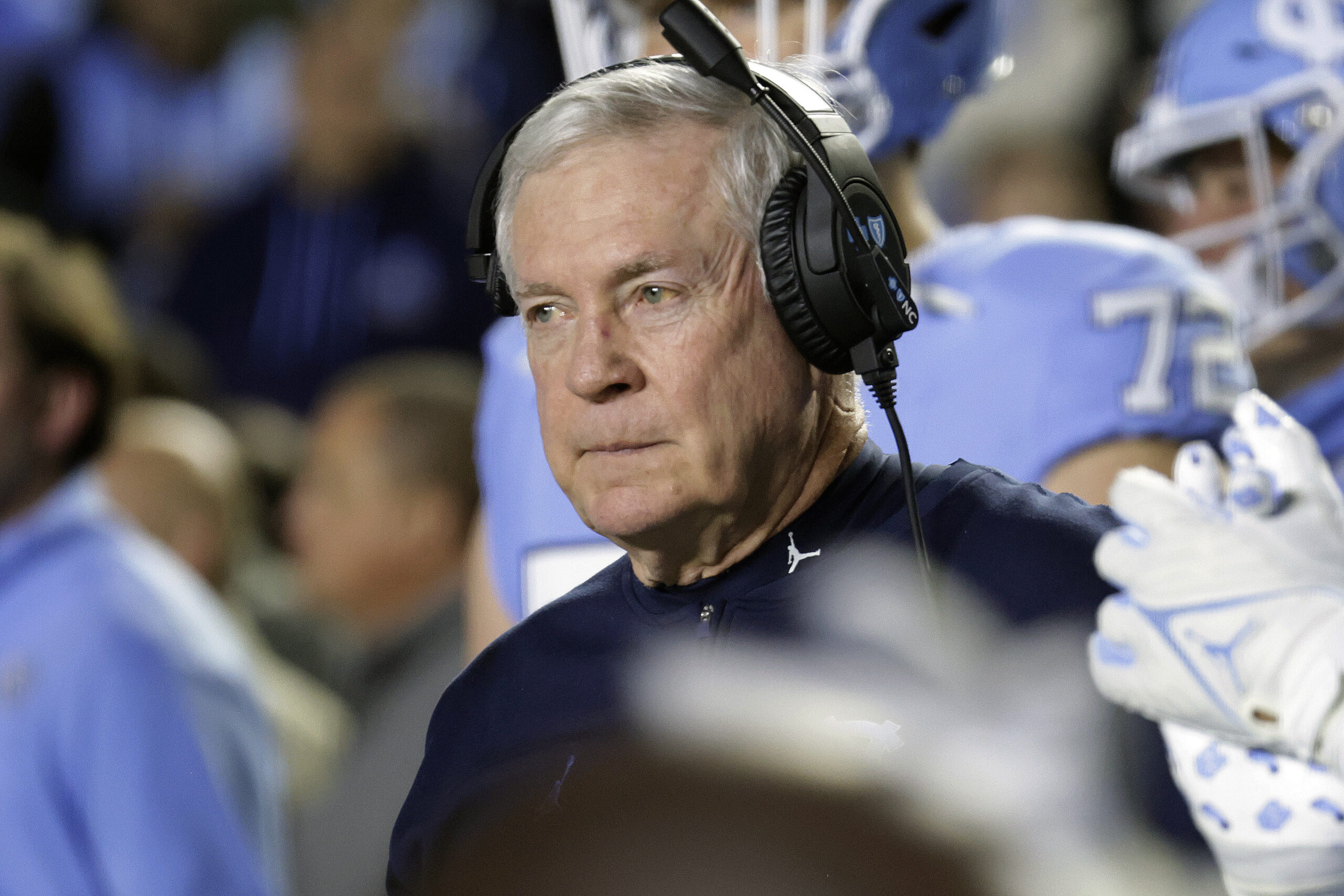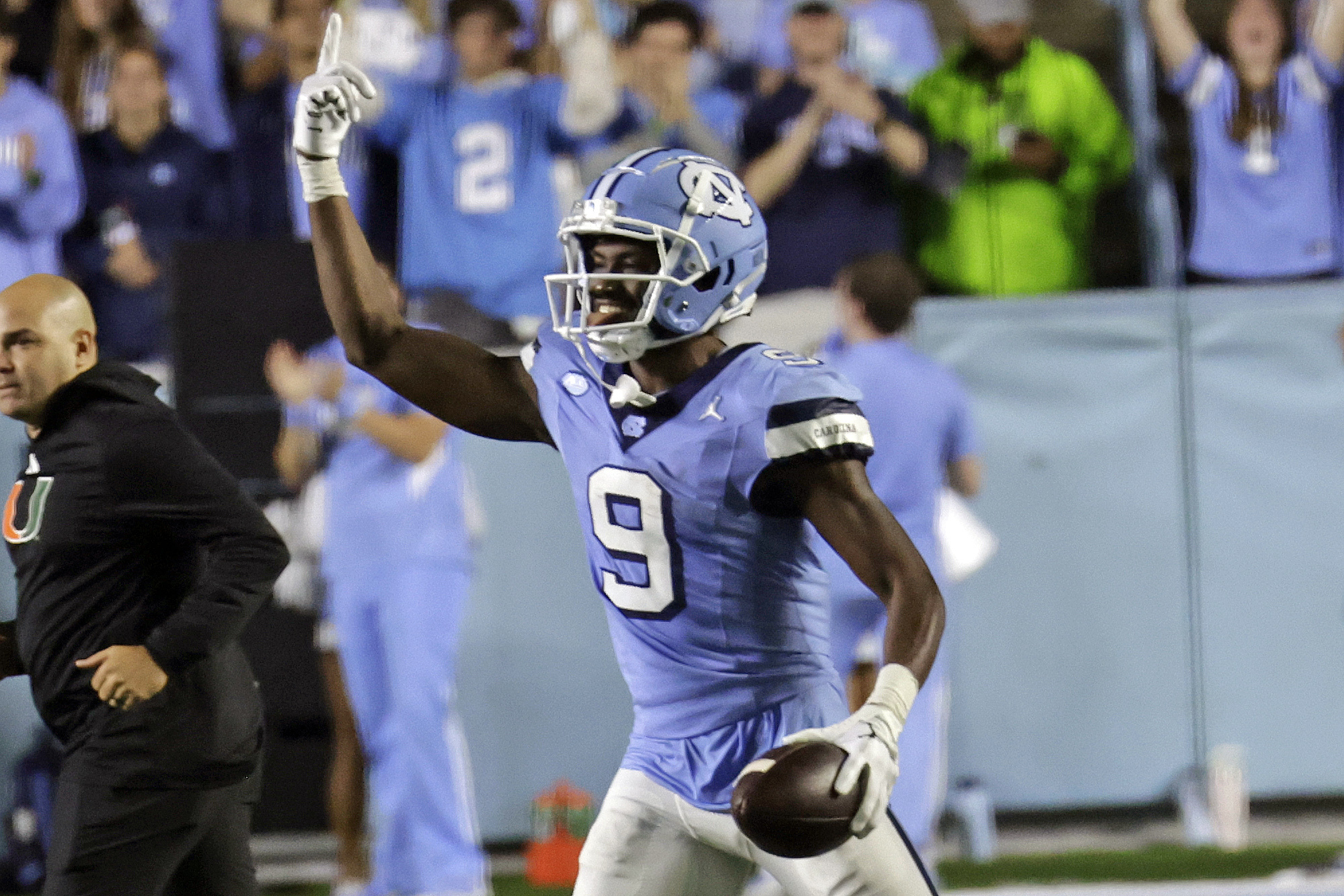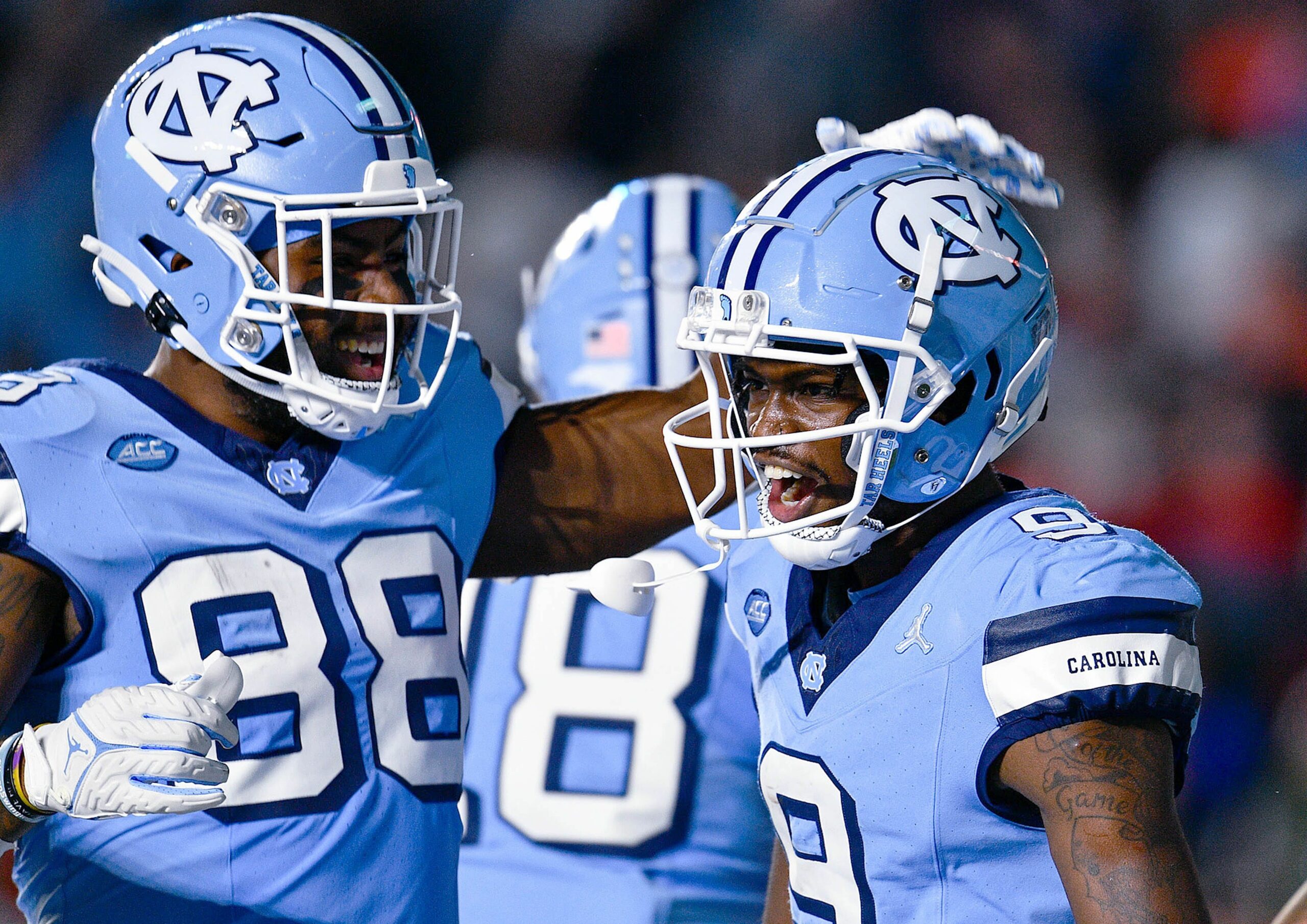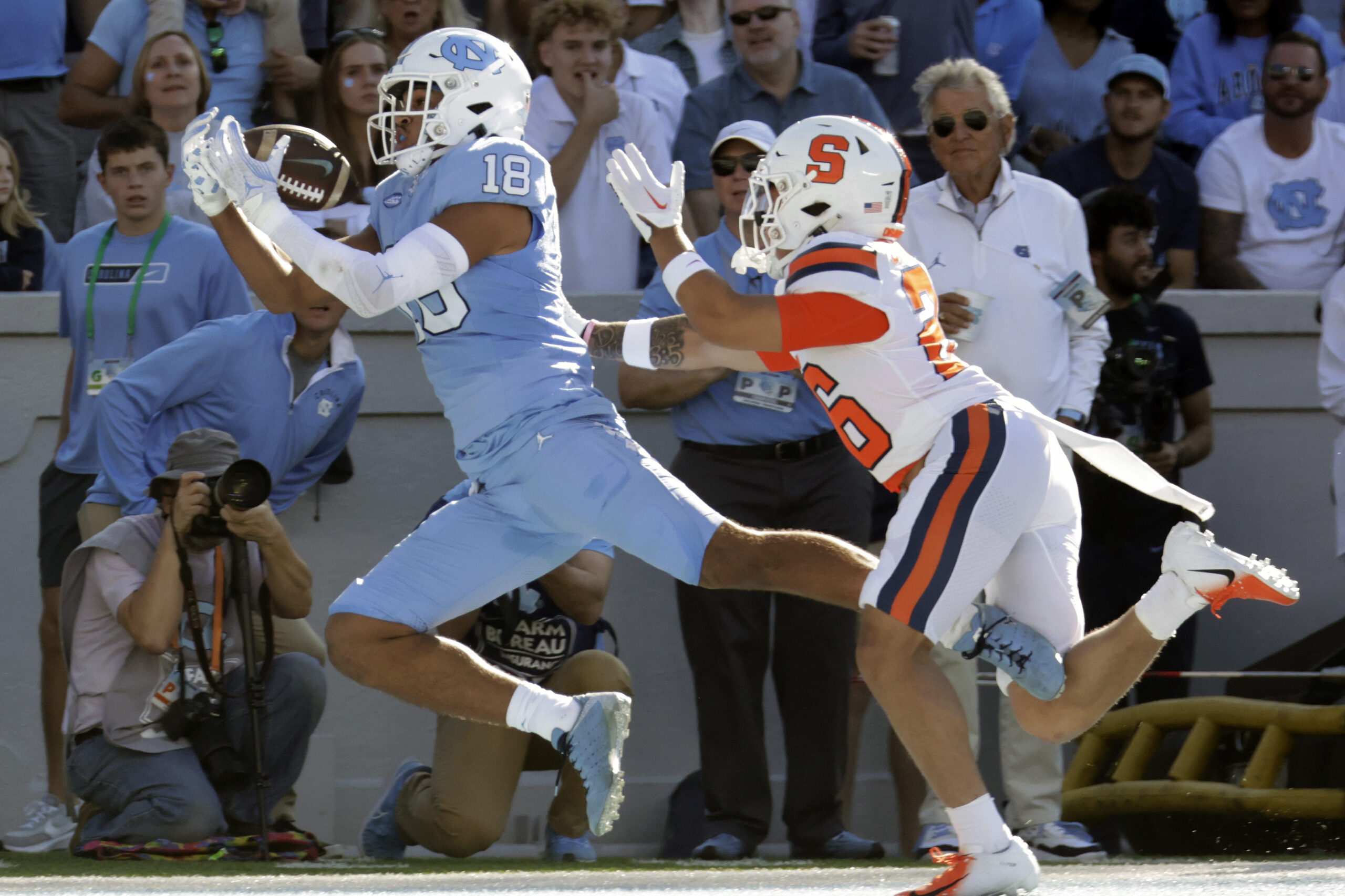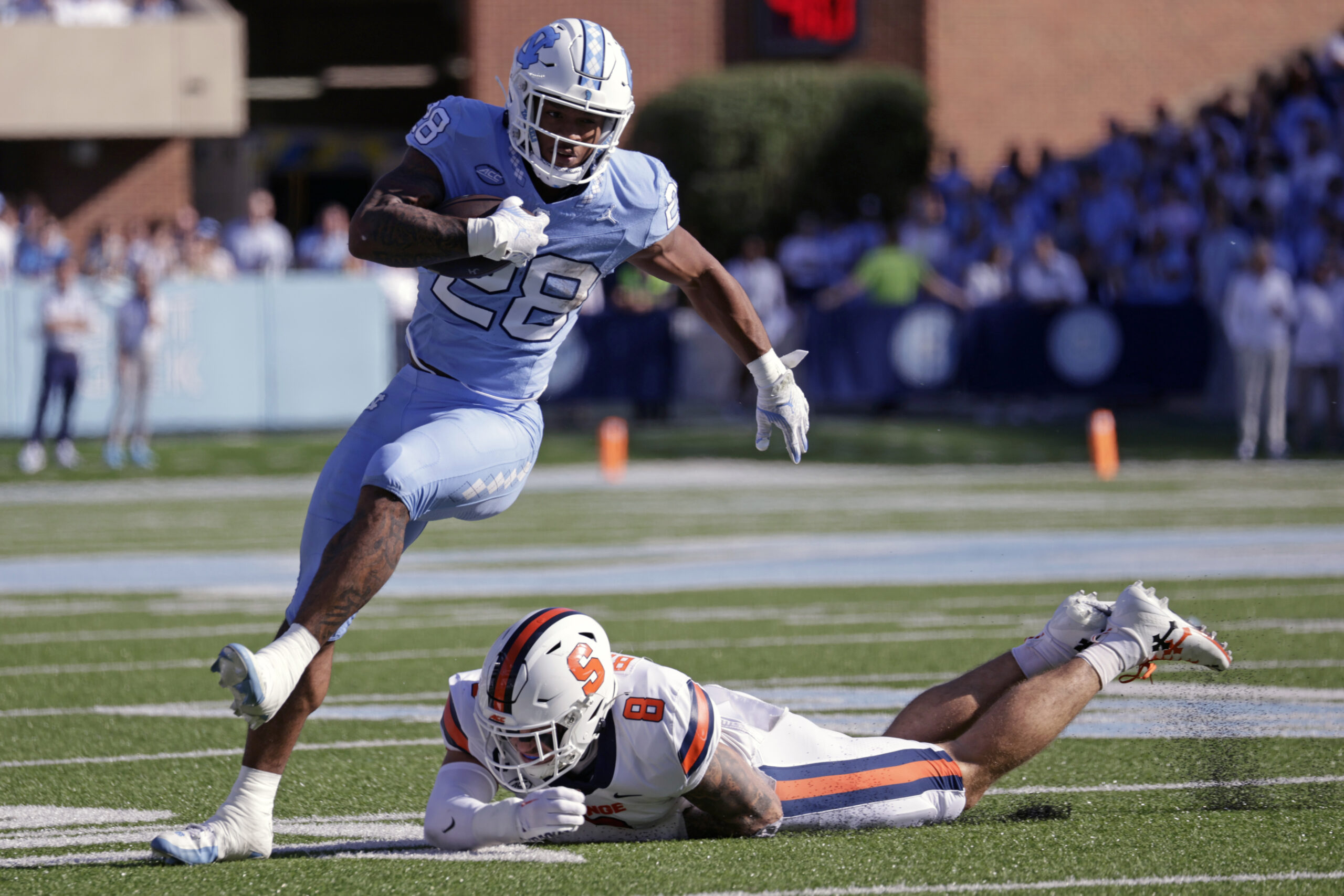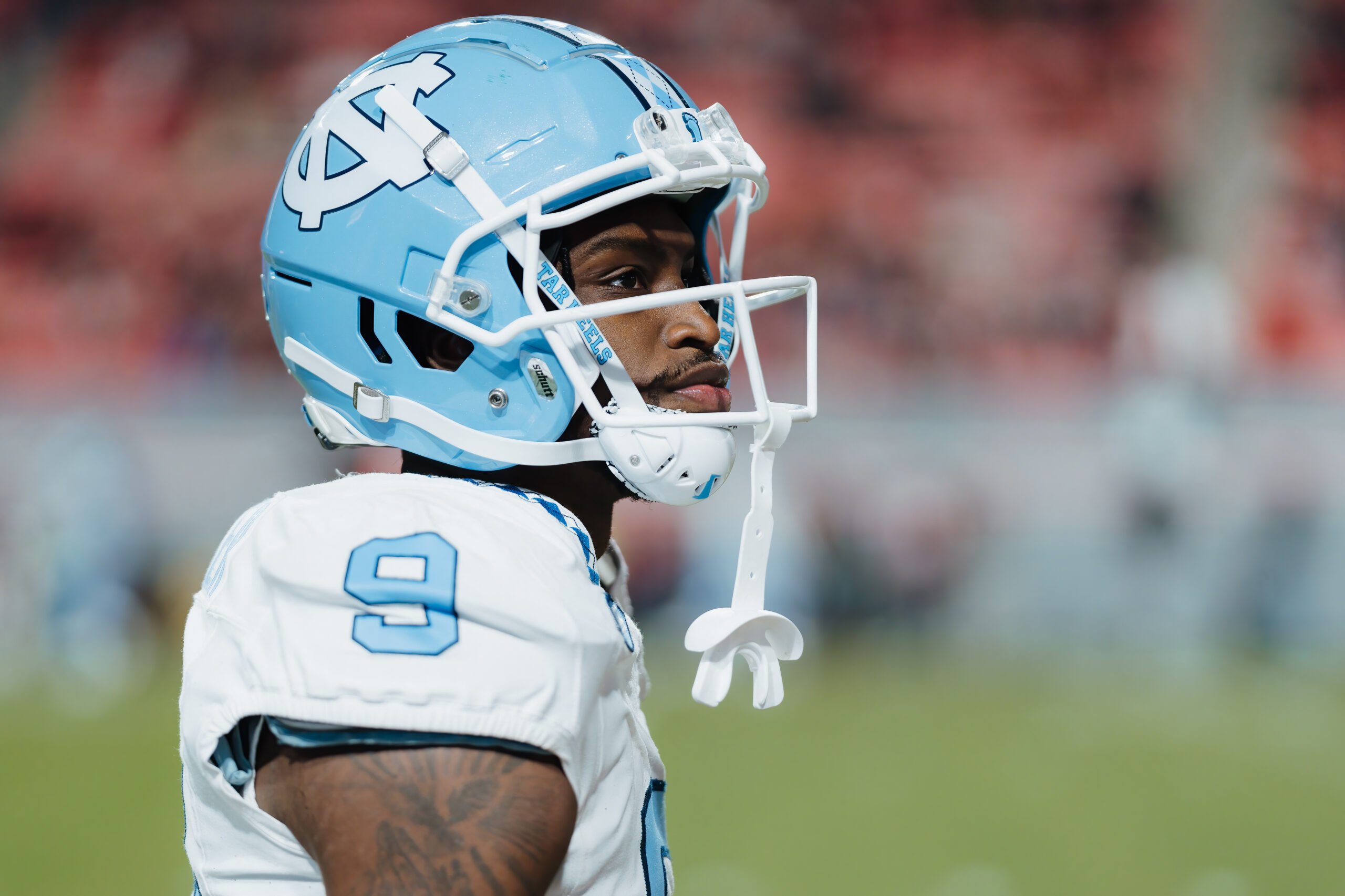
To reflect on the year, Chapelboro.com is re-publishing some of the top stories that impacted and defined our community’s experience in 2023. These stories and topics affected Chapel Hill, Carrboro and the rest of our region.
In January of 2023, wide receiver Tez Walker officially enrolled at UNC. The former Kent State star and Charlotte native had committed to Carolina out of the transfer portal and was set to be a top target for quarterback Drake Maye. Considerable hype began to build, as Walker was named preseason first team All-ACC. He was also named to the watch list for the Biletnikoff Award, given to the nation’s top pass-catcher. Everything was in place for Walker to have an outstanding season. That is, if he was allowed to take the field.
On the morning of August 8, UNC head coach Mack Brown hosted one of his regular post-practice press conferences. But the Hall of Fame head coach wasn’t his usual optimistic self. This time, Brown had some sobering news to share: the NCAA had ruled wide receiver Tez Walker ineligible for the 2023 season. According to Brown, the NCAA was classifying Walker as a two-time transfer, thus necessitating a year on the sidelines.
“When Tez transferred… he met the criteria for a transfer to be automatically eligible,” Brown said. “He enrolled in classes on January 9, and then the NCAA changed the rule [on] January 11. The NCAA indicated approval of his waiver… but that was before the change of the waiver directive.”
Brown told reporters UNC had organized an appeal on Walker’s behalf. But if nothing changed, Walker would not be able to suit up for the Tar Heels. There was less than a month to go before Carolina’s season opener against South Carolina in Charlotte, Walker’s hometown.
“You can imagine what that does to a 21-, 22-year-old kid,” said UNC receivers coach Lonnie Galloway. “Thinking that you’ve done right, and not [knowing] whether or not he’s going to play this year.”
Still, both Brown and Galloway expressed confidence Walker’s appeal would be granted in time for Carolina’s first game.
“I’m not worried,” Galloway said. “When we call the Blue [starting] group [in practice], Tez is going out there. That’s the only thing I can do right now.”
Walker soon released a statement of his own on social media.
“I want this to be over,” he said. “I want to stop feeling like this. I just want to play.”
Walker’s road to Chapel Hill had been filled with twists and turns. He had initially committed to East Tennessee State, but suffered a serious knee injury and had his scholarship deferred. He then signed at North Carolina Central before the 2020 season. When all FCS programs decided not to play that year due to the COVID pandemic, Walker left school and ended up at Kent State in 2021. There, Walker became one of the Golden Flashes’ best players, posting 921 receiving yards and 11 touchdown catches as a sophomore in 2022.
Following the 2022 season, much of the Kent State coaching staff left the program, and Walker entered his name into the transfer portal. When Carolina came calling, Walker quickly made his choice. In his statement on August 8, Walker said a main reason for coming to Chapel Hill was to be closer to his family, namely his grandmother in Charlotte. Due to health issues preventing extended travel, she had never seen him play a college football game.
“She is my rock, my everything, and I wouldn’t be where I am today without her,” Walker said.
The basis of the NCAA’s rejection of Walker’s waiver was his status as a multi-time transfer. The NCAA gave Walker this classification despite him only playing for one school. He never suited up for North Carolina Central, because the Eagles never played a game with him on the roster.
“Kent State fully supports him being eligible,” Brown said. “They understand and want him to be eligible. They have written a letter [to the NCAA] about his eligibility.”
Walker’s former school wasn’t the only one to come to his defense. North Carolina Governor Roy Cooper wrote an open letter to the NCAA expressing his support for Walker’s case.
“This is the first time I have taken such an action,” Cooper wrote, “but this is an unusual and compelling case amidst the backdrop of all the major changes happening in the NCAA.
“Tez and other student-athletes like him deserve to be grandfathered into the rules that existed previously.”
As the days went by and the season opener on September 2 drew nearer, the NCAA remained silent on Walker’s status. Eventually, both the program and Walker had to face the inevitable truth: he would not play against the Gamecocks. The embattled wideout traveled with the team to Charlotte and stood on the sidelines in street clothes. His jersey still made an appearance on the field, though. Country musician Eric Church, serving as UNC’s honorary captain, wore Walker’s No. 9 jersey for the ceremonial coin toss.
After the game, a 31-17 win for UNC, the program continued to beat the drum for Walker.
“I just want him to play,” said edge rusher Kaimon Rucker. “I want the NCAA to clear him and let him play. We want him, man.”
Maye wore Walker’s jersey during his postgame media availability.
Brown continued to express concern for Walker’s mental health, saying, “We didn’t want to leave him by himself [Friday] night. He said, ‘Can I go home?’ We said, ‘No, you need to stay here and be with us and be around the team.'”
Brown also revealed Walker would meet with an NCAA committee on Thursday, September 7 to discuss his eligibility case, in what was seen as the receiver’s final chance to play in 2023.
That morning, the news broke: the committee had heard Walker’s case and ruled against him. Walker was ineligible for the 2023 season, almost certainly for good. Brown wasted no time in publishing a statement online, one which took the NCAA to task for its mishandling of the case.
“It’s clear that the NCAA is about process and it couldn’t care less about the young people it’s supposed to be supporting,” he said. “I’ve lost all faith in its ability to lead and govern our sport… how dare they ever speak about mental health and student-athlete welfare again.
“It makes no sense and never will,” Brown’s statement went on to say. “Shame on you, NCAA. SHAME ON YOU!”
UNC athletic director Bubba Cunningham and chancellor Kevin Guskiewicz soon put out their own statements. While not as fiery as Brown’s, both expressed disappointment and confusion at the decision. Cunningham described it as one that “undermines the fair treatment of student-athletes and further erodes the public’s confidence in our national governing body.” Said Guskiewicz, “We believe the facts of his situation should obviously permit him to play this season.”
Local lawmakers weighed in as well, with Orange County District Attorney Jeff Nieman calling the decision both “unconstitutional” and “completely insane.”
The NCAA fired back days later by saying Brown’s comments “directly contradict what we and our fellow Division 1 members and coaches called for vociferously – including UNC’s own football coach,” in reference to Brown’s complaints about multi-time transfers during the offseason. In addition, the NCAA alleged its committee members had received threats, some possibly criminal, in the days following the decision.
Even with Walker sidelined, the program still kept up the fight on his behalf. Players began to wear shirts with Walker’s silhouette and No. 9 jersey. The Kenan Stadium crowd chanted Walker’s name while he was shown on the video board.
What most didn’t know was that behind the scenes, legal powers were still working in Walker’s defense. On September 26, North Carolina Attorney General Josh Stein wrote a letter to NCAA president Charlie Baker. In the letter, Stein called the NCAA’s decision “wrong – and likely illegal.”
“Restricting Mr. Walker from playing at UNC-Chapel Hill this fall raises serious antitrust concerns as an illegal restraint of trade,” Stein wrote. “In essence, the NCAA has imposed a sweeping, unilateral, one-year non-compete restriction, in violation of both state and federal law… it is exceedingly difficult, if not impossible, to justify the NCAA’s decision.”
Stein concluded his letter by saying he would “not hesitate” to pursue legal options against the NCAA, but also stood “ready to engage” with it “should the organization decide to do so.”
https://twitter.com/noahmtweets/status/1710298306784473437
Stein’s letter was only made public when, on October 5, the NCAA abruptly reversed course and granted Walker immediate eligibility for the rest of the season. The NCAA said it had received “new information” which qualified Walker for a waiver.
“It is unfortunate that UNC failed to provide this important information previously,” read the organization’s statement. “UNC’s behavior and decision to wage a public relations campaign is inappropriate and outside the bounds of the process UNC’s own staff supported.”
Cunningham was quick to respond, calling the NCAA statement “not accurate” and saying “the University submitted all necessary information and documentation as it was made available to us at the time.”
“It is not clear why the NCAA delayed making the correct decision then,” Cunningham’s statement read, “but we are pleased to get the appropriate resolution now.”
Brown said he was “thrilled” with the reversal, and Walker described himself as “excited and thankful.” The football program soon shared a video on social media of Brown and Galloway breaking the news to the wideout.
Now came the difficult part. Walker had been declared eligible on a Thursday. In two days, UNC would host Syracuse. Walker, who had spent recent weeks practicing with Carolina’s scout team instead of the starters, had roughly 48 hours to learn a simplified version of the game plan and get ready to play.
He took the field against the Orange waving the North Carolina state flag, and was greeted with raucous cheers when he checked in for the first time. Walker ended the day with six catches for 43 yards, an impressive stat line for someone who wasn’t supposed to play at all.
The next week, Walker truly had his coming-out party: 132-yard, three-touchdown performance against No. 25 Miami in front of a sold-out Kenan Stadium. Walker would end the season as UNC’s leader in both receiving yards and receiving touchdowns, despite the fact that he only played in eight games. The ACC named Walker a third team all-conference honoree, and in December he announced his intention to play in the Reese’s Senior Bowl, forgo his remaining eligibility and declare for the NFL Draft.
Walker will end his Tar Heel career with less than a full season under his belt, but he could be one of the most influential Tar Heel football players ever, one whose fight against the NCAA seems to have been a preview of larger battles to come. In early December, Stein announced his intention to sue the NCAA over its transfer eligibility rule, calling it an “illegal restraint” on college athletes. Six other state attorneys general from around the country are joining Stein in the suit.
In its release describing the lawsuit, the North Carolina Department of Justice specifically referenced Walker’s case.
Featured image via Eli Melet
Chapelboro.com does not charge subscription fees, and you can directly support our efforts in local journalism here. Want more of what you see on Chapelboro? Let us bring free local news and community information to you by signing up for our biweekly newsletter.

